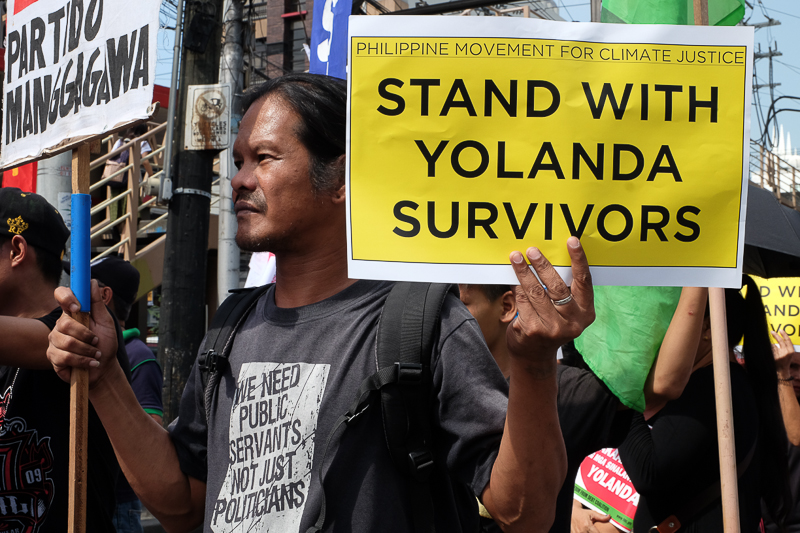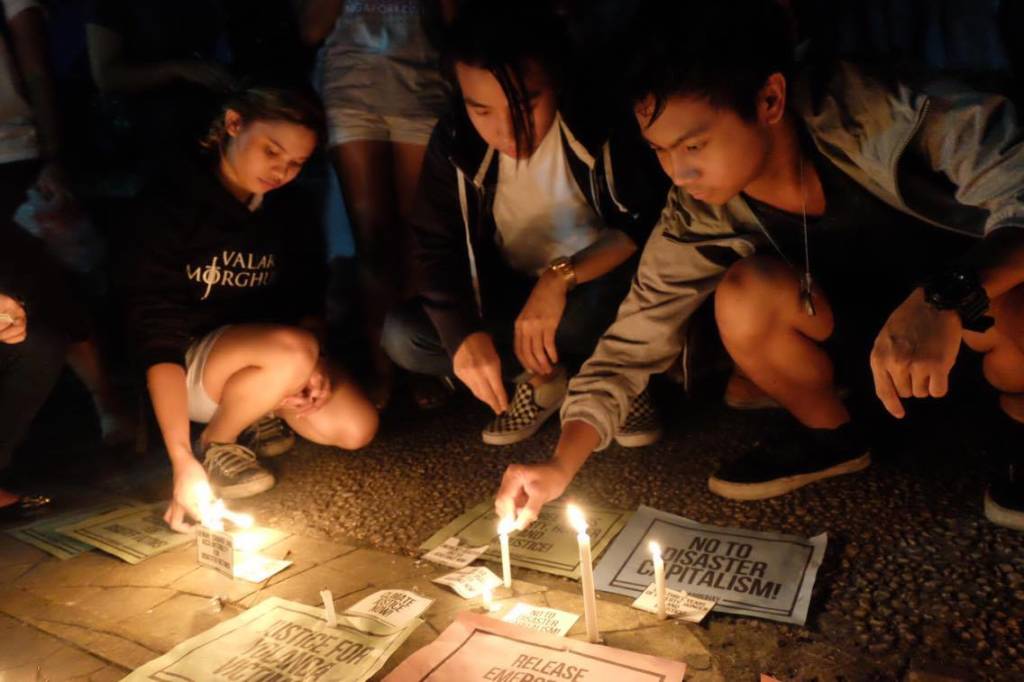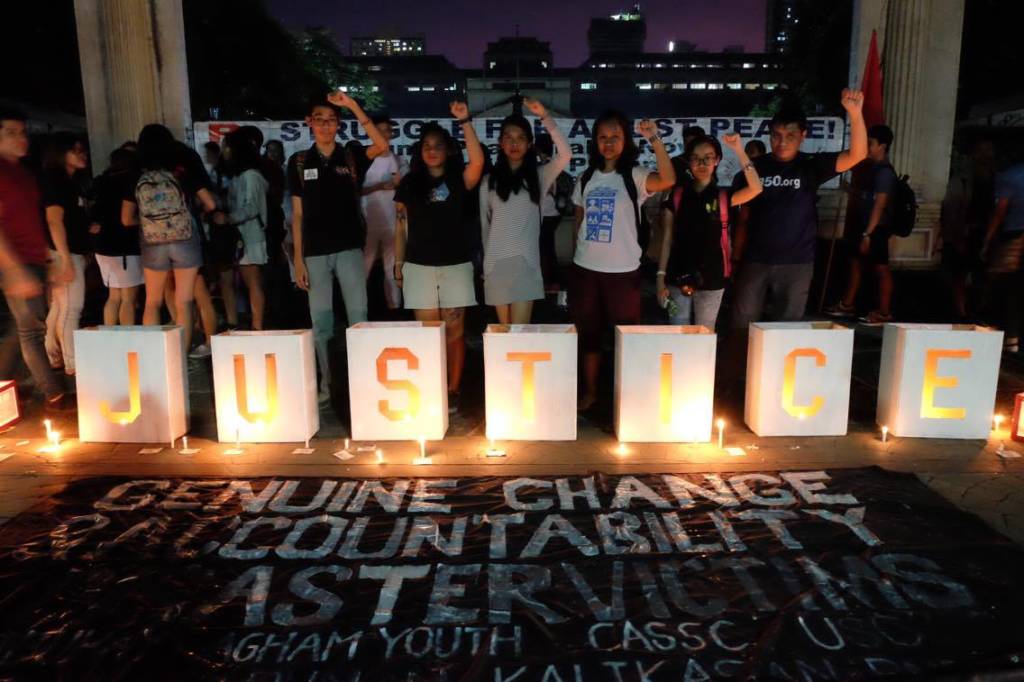By Chuck Baclagon
Struggle is the tension between hope and desperation. It best describes the plight of the many who have gotten a glimpse of climate change’s destructive onslaught already felt by countries like the Philippines.
Three years after Haiyan, the strongest storm in recorded history, made landfall and devastated central Philippines, there is still much work to be done to build back better and demand climate justice. Several organizations in the midst of the climate struggle in the Philippines pointed this out through different activities over the past few days.
Resilience: Going beyond relief and rescue
Haiyan survivors from Marabut, Samar commemorated the anniversary of the super typhoon’s landfall last Saturday by conducting an evacuation drill in Tinabanan Cave, the designated shelter of the village of the same name. This particular cave saved their lives during the storm as well as in many other disasters and wars in the past. Part of the drill involves lighting the main portion of the cave, the toilets and makeshift kitchen using the TekPak, a portable solar device capable of powering lights, mobile phones, and medical devices. It was developed through the Institute of Climate and Sustainable Cities’ Solar Scholars program that trained Haiyan survivors to become disaster responders.
#RememberHaiyan

Climate activists from pay their respects to the casualties and survivors ofTyphoon Haiyan (Yolanda), which devastated central Philippines 3 years ago at a solidarity march that was hod in Mendiola, Manila where the groups also reiterated their call for climate justice, to the leaders gathering for the 22nd conference of parties happening in Marakech, Morocco. Photo: AC Dimatatac
In Tacloban and in Manila, people gathered to light candles, memorialize and remember the many individuals who perished and as well as those who survived in the midst of tragedy. In this photo, climate activists paid their respects to the casualties and survivors at a solidarity march that was held in Mendiola, Manila. They also reiterated their call for climate justice addressed to world leaders gathering at the UN climate negotiations in Marrakech, Morocco.
System change not climate change
Climate justice can only be made possible through collective action in all fronts of the struggle, whether it be in the coal mines and coal plants, courts, offices of government, voting precincts, or international conferences like the one in Marrakech.

Students of the University of the Philippines, Manila light candles to stand in solidarity with the survivors of Typhoon Haiyan. Photo: AC Dimatatac
It can be achieved not only in drastically changing the way we use, produce and distribute energy but more so in confronting and defeating the political and economic system that paved the way for fossil fuel development, which created the climate crisis.
Learning our lesson
Our experience of Haiyan teaches us that beyond ecological collapse, the greatest disaster that climate change brings is exacerbating already existing inequities. If we respond to the crisis hastily, it would only lead to more tragedy, such as the plight of many in Tacloban, Marabut, and other parts of the country who are still living in flimsy shelters and still coming to grips with the loss of their loved ones.

Climate activists raise their fists for the plight of those to whom climate justice is due. Photo: AC Dimatatac
We live in anxiety not only because of the overwhelming danger posed by climate change but also because of the political climate that criminalizes common sense and dissent – and rewards dictators like Marcos and corporate criminals like Trump. But our collective actions in the different arenas of struggle are small yet concrete triumphs that would help us carry on and push forward.
